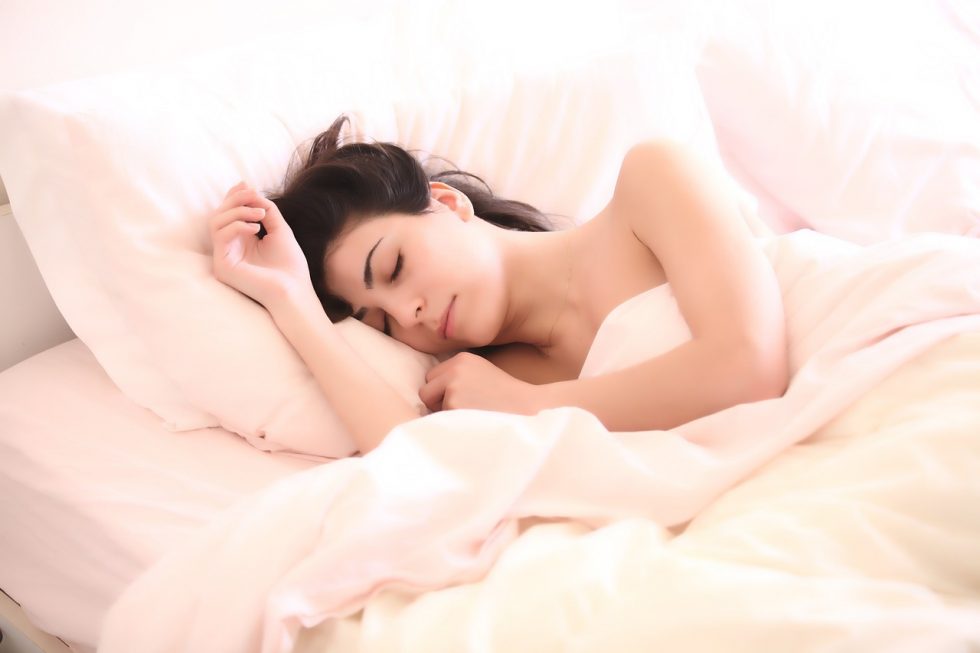
How to Stop Panic Attacks at Night: A Comprehensive Guide
How to Stop Panic Attacks at Night: A Comprehensive Guide
Table of Contents
I. Introduction
If you’re reading this, you might be dealing with panic attacks, especially those ones that sneak up on you at night.
I know how tough it can be – your heart racing, your mind spinning, all when you’re just trying to get some rest.
As a Personal Development Coach and Therapist, I’ve worked with many people who’ve faced the same struggle.
But here’s the good news: there are ways to manage this and I’m here to share them with you.
II. Understanding Panic Attacks
A. What are Panic Attacks?
Panic attacks are sudden, intense episodes of fear or discomfort that can be incredibly overwhelming. They typically peak within minutes and can include a variety of physical and emotional symptoms.
Physically, you might experience a racing heart, sweating, trembling, shortness of breath, or even a feeling of choking. Some people report feeling dizzy or lightheaded, while others might have chills or hot flushes. It’s not uncommon to feel nauseous or to have stomach cramps. In fact, the physical symptoms can be so intense that many people fear they’re having a heart attack.
Emotionally, the experience can be just as distressing. You might feel a sense of impending doom or a fear of losing control. Some people feel as if they’re detached from reality or from themselves during a panic attack, which can be particularly disorienting.
The unpredictability of panic attacks can also be a source of distress. They can strike at any time, without any obvious trigger. This can create a cycle of fear, where the fear of having a panic attack becomes a source of anxiety in itself.
But here’s the thing: as scary as panic attacks can be, they’re not physically dangerous. And more importantly, they can be managed. Understanding what panic attacks are is the first step towards learning how to cope with them. By recognising the signs and symptoms, you can start to develop strategies to manage them effectively.
Remember, if you’re dealing with panic attacks, you’re not alone. Many people experience them, and help is available. You don’t have to navigate this on your own.
B. Why Do Panic Attacks Happen at Night?
You might wonder why these attacks often choose to strike at night.
Panic attacks can indeed seem more prevalent at night, and there are several reasons why this might be the case.
As you’re trying to wind down and relax, your guard is down. The distractions of the day have faded away, and you’re left alone with your thoughts. This quiet time can sometimes allow anxieties and worries to creep in. It’s a bit like your brain deciding to throw a rave party when all you’re looking for is some peace and quiet.
Lifestyle factors can contribute as well. Consuming caffeine or alcohol, eating large meals close to bedtime, or not getting enough sleep can all increase the likelihood of experiencing panic attacks at night.
C. The Sleep-Anxiety Connection
There’s a strong link between sleep and anxiety. Poor sleep can lead to increased anxiety, and increased anxiety can lead to…you guessed it, poor sleep. It’s a vicious cycle, but don’t worry, we’re going to break it.
The process of falling asleep can sometimes trigger panic attacks. As we drift off to sleep, our breathing naturally becomes slower and shallower. For some people, this change in breathing can feel similar to the shortness of breath experienced during a panic attack, which can trigger a full-blown episode.
Additionally, our sleep cycles can also play a role. During the rapid eye movement (REM) stage of sleep, when most dreaming occurs, our brains are highly active. This increased brain activity can sometimes lead to panic attacks.
Understanding why panic attacks happen at night can help you take steps to manage them. This might involve creating a relaxing bedtime routine, practising good sleep hygiene, or seeking professional help if panic attacks continue to disrupt your sleep. Remember, help is available, and with the right strategies and support, you can manage panic attacks and improve your sleep.
III. The Impact of Nighttime Panic Attacks
A. Disrupted Sleep
Panic attacks at night can wreak havoc on your sleep. One minute you’re dreaming of beaches and sunshine, the next you’re wide awake in a cold sweat. It’s not exactly conducive to a good night’s rest.
B. Long-Term Effects
Over time, this disrupted sleep can lead to other issues like fatigue, difficulty concentrating, and even physical health problems. It’s like a domino effect, but it’s one we can prevent.
IV. Practical Strategies on How to Stop Panic Attacks at Night
A. Breathing Techniques
Breathing techniques can indeed be a game-changer when it comes to managing panic attacks. When we’re anxious, our breathing can become quick and shallow, which can exacerbate feelings of fear and anxiety. By consciously controlling our breath, we can help to calm our body’s stress response and reduce feelings of panic.
One effective technique is called the ‘4-7-8’ method. Here’s how it works: inhale deeply through your nose for a count of four, hold your breath for a count of seven, and then exhale slowly through your mouth for a count of eight. Repeat this cycle several times. This technique can help to slow your heart rate and promote a sense of calm.
B. Mindfulness and Relaxation Exercises
Mindfulness is a practice that involves focusing your attention on the present moment, without judgement. It’s about observing your thoughts, feelings, and sensations as they arise, and then letting them go.
One simple mindfulness exercise is to focus on your senses. What can you see, hear, touch, taste, smell right now? By grounding yourself in the physical world, you can help to pull your focus away from anxious thoughts.
Relaxation exercises, such as progressive muscle relaxation or guided imagery, can also be helpful. These techniques involve systematically relaxing different muscle groups or visualising calming scenes to promote physical and mental relaxation.
Check out this post on Mindfulness for Beginners for more help.
C. Physical Activity
Physical activity is a powerful tool for managing anxiety. Regular exercise can help to reduce anxiety by boosting your mood, acting as a natural stress reliever, and improving your sleep.
The key is to find an activity that you enjoy and that fits into your lifestyle. It doesn’t have to be intense or time-consuming. It could be as simple as a daily walk, a yoga class, or even a dance party in your living room. The important thing is to get moving in a way that feels good to you.
You might also find this post on the 3-3-3 Rule helpful.
D. Dietary Considerations
What we eat can have a significant impact on our anxiety levels. Certain foods and drinks, such as those high in caffeine and sugar, can increase feelings of anxiety and make it harder to sleep.
Try to limit your intake of these foods, especially in the hours leading up to bedtime. Instead, opt for a balanced diet that includes plenty of fruits, vegetables, lean proteins, and whole grains. These foods can help to keep your blood sugar levels stable and support overall mental health.
Remember, these strategies are tools that you can use to manage panic attacks. It might take some time to find what works best for you, and that’s okay. The important thing is to keep trying, be patient with yourself, and seek professional help if you need it.
V. Therapeutic Approaches to Managing Panic Attacks
A. Cognitive Behavioural Therapy (CBT)
CBT is a type of therapy that helps you understand and change thought patterns that lead to harmful behaviours or emotional distress. It’s like rewiring your brain, and it can be incredibly effective. If you’re interested in learning more about this, you might find this post on How to Reprogramme Your Subconscious Mind useful.
B. Medication
In some cases, medication might be necessary. It’s not a failure or a weakness, but another tool in your toolbox. Always consult with a healthcare professional before starting any new medication.
VI. Creating a Soothing Sleep Environment
A. Sleep-Friendly Environment
Creating a sleep-friendly environment is a crucial step in managing panic attacks at night. Your bedroom should be a sanctuary, a place where you can relax and escape from the stresses of the day. Here are a few tips to help you create a calming sleep environment:
- Keep it quiet: Noise can be a significant disruptor of sleep. Consider using earplugs, a white noise machine, or a fan to drown out any unwanted sounds.
- Keep it dark: Light can interfere with your body’s production of melatonin, a hormone that helps regulate sleep. Use blackout curtains, an eye mask, or even a towel over your bedroom window to keep your room dark.
- Keep it cool: The temperature of your room can also affect your sleep. Most people sleep best in a slightly cool room, around 18 degrees Celsius. Experiment with your room’s temperature to find what works best for you.
- Make it comfortable: Invest in a good quality mattress, pillows, and bedding. Your bed should be a place that you look forward to sinking into at the end of the day.
B. Sleep Hygiene
Good sleep hygiene is all about creating habits that support good quality sleep. Here are some key principles of sleep hygiene:
- Maintain a regular sleep schedule: Try to go to bed and wake up at the same time every day, even on weekends. This can help regulate your body’s internal clock and make it easier to fall asleep and wake up.
- Avoid screens before bed: The blue light emitted by phones, tablets, computers, and TVs can interfere with your sleep. Try to turn off these devices at least an hour before bed.
- Create a relaxing bedtime routine: A relaxing routine before bed can help signal to your body that it’s time to sleep. This could include activities like reading a book, taking a warm bath, listening to calming music, or practicing a relaxation exercise.
- Watch what you eat and drink: Try to avoid large meals, caffeine, and alcohol close to bedtime. These can disrupt your sleep.
Remember, everyone is different, and what works for one person might not work for another. It might take some trial and error to find what works best for you. But with patience and consistency, you can create a soothing sleep environment and improve your sleep hygiene.
VII. Conclusion
Remember, it’s okay to ask for help. You’re not alone in this, and there are resources and people out there who can support you. Try these strategies, see what works for you, and take it one step at a time. You’ve got this. And remember, every small step you take towards managing your panic attacks at night is a victory. So, celebrate your progress, no matter how small it may seem. You’re stronger than you think, and you’re capable of overcoming this. I believe in you. Now, it’s time for you to believe in yourself.






Facebook Comments